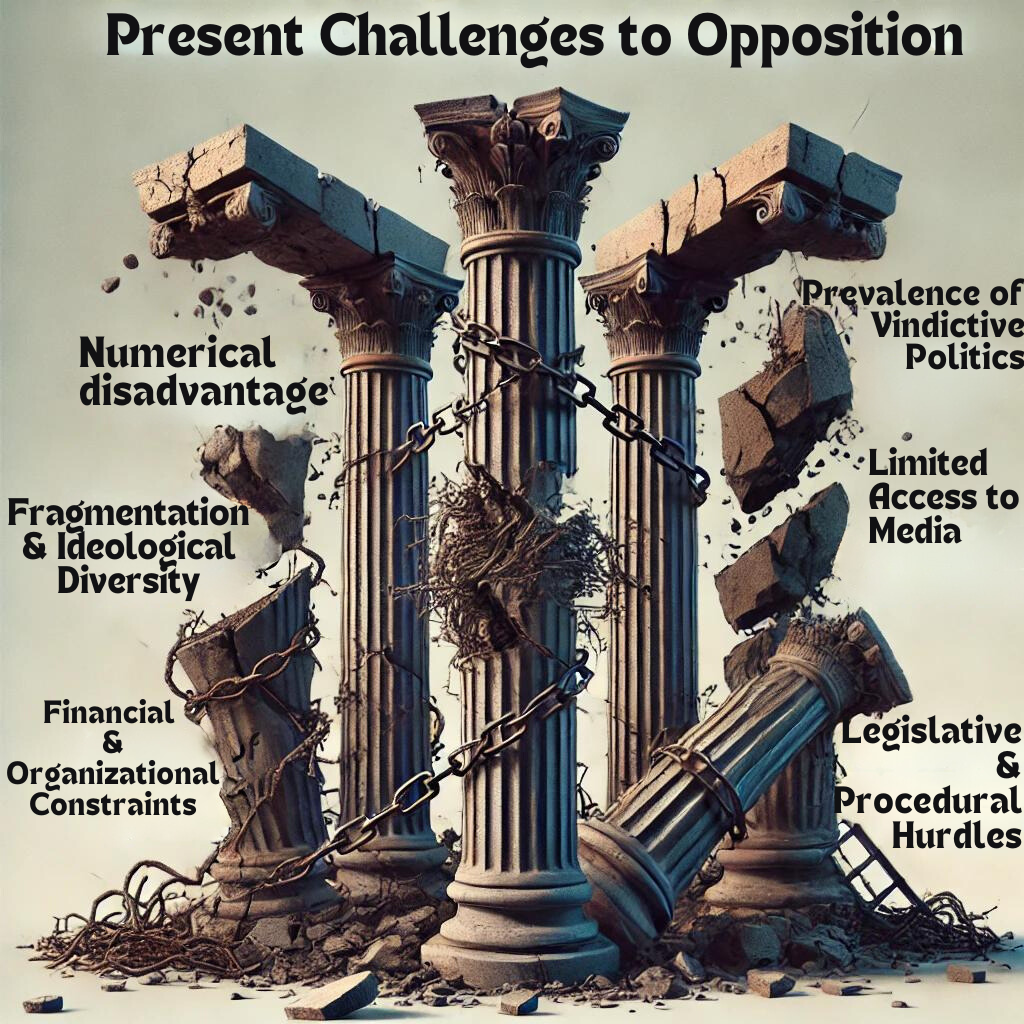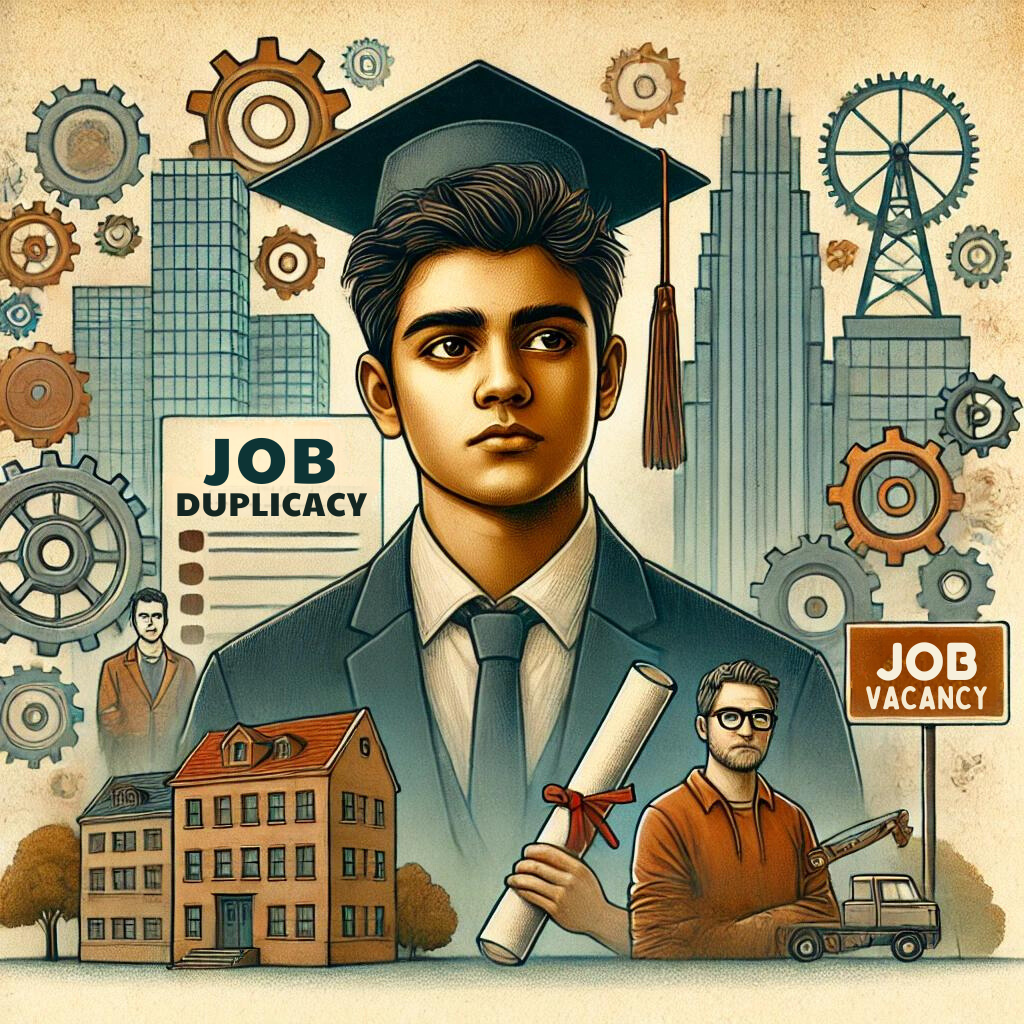The 18th Lok Sabha marks a significant change in India’s parliamentary landscape with a stronger opposition. This shift has brought challenges in maintaining decorum and increased scrutiny in legislative proceedings. A stronger opposition in the 18th Lok Sabha, with 234 seats and the recognition of the Leader of the Opposition (LoP) after a decade, reflects a healthier democratic setup. This is a positive step towards ensuring better parliamentary functioning and accountability of the ruling government.
Origin of the Article
This editorial is based on “Friction in Parliament reflects political reality,” published in Hindustan Times on 09/07/2024. The article discusses the significant changes in the 18th Lok Sabha with a stronger opposition.
Relevancy for UPSC Students
Understanding the role and importance of a strong opposition is crucial for UPSC aspirants. It aligns with the syllabus covering constitutional bodies, parliamentary systems, and democratic governance. This knowledge aids in comprehending the checks and balances necessary for a functioning democracy.

Why in News
The dynamics of a stronger opposition in the 18th Lok Sabha are pivotal, reflecting the essence of democratic checks and balances. This development is crucial for UPSC aspirants as it ties directly to GS Paper 2, emphasizing the significance of parliamentary opposition in ensuring accountability. Past UPSC questions have focused on the role and recognition of the Leader of the Opposition, making this a timely and relevant topic for exam preparation.
Parliamentary Opposition Dynamics
Parliamentary opposition is fundamental in a democracy, particularly in a Westminster-based system like India’s. The Official or Principal Opposition is typically the largest party opposing the government. This group plays a vital role in ensuring checks and balances within the legislative process. The Leader of the Opposition (LoP) is pivotal in this dynamic, embodying the voice and concerns of those not represented by the ruling party.
Leader of Opposition (LoP)
In India, the Leader of the Opposition is recognized when the largest opposition party holds at least one-tenth of the seats in the House. This statutory post, defined by the Salary and Allowances of Leaders of Opposition in Parliament Act, 1977, is crucial for maintaining democratic integrity. The LoP is involved in key appointments like the Director of the CBI and members of the National Human Rights Commission, ensuring diverse representation in vital positions.
Leader of the Opposition (LoP) in Westminster model of United Kingdom
In the UK’s Westminster model, the Leader of the Opposition is regarded as the “Prime Minister-in-waiting” and leads a shadow cabinet. This cabinet critiques government policies and proposes alternatives, ensuring robust parliamentary functioning. The LoP’s responsibilities include leading debates, demanding government accountability, and upholding democratic norms, making this role essential for a balanced and effective legislative process.
Significance of Opposition in Democracy
Significant Role of Opposition
Constructive opposition is integral to a democracy, which is key in building public opinion and scrutinizing government actions. By adhering to constitutional norms, the opposition ensures the government remains accountable. Their daily actions in parliament, committees, and public discourse help critically examine policies and legislation, advocate for constituency-specific needs, and propose necessary amendments.
Improved Parliamentary Functioning
The current parliamentary functioning faces challenges like declining sittings, low productivity, and reduced Bill passage. For instance, the 17th Lok Sabha saw a significant drop in legislative productivity. A strong opposition can address these issues by ensuring better parliamentary productivity and more thorough scrutiny of Bills through active participation in parliamentary committees and debates, thereby enhancing overall legislative efficacy.
Present Challenges to Opposition

Numerical Disadvantage
Opposition parties often lack sufficient numerical strength, affecting their ability to influence legislative outcomes and secure committee memberships. For example, the absence of a recognized LoP in the 16th and 17th Lok Sabhas underscores this challenge. Although the 18th Lok Sabha has seen some improvement, the representation of regional parties remains a concern, impacting their ability to voice regional aspirations effectively.
Fragmentation and Ideological Diversity
The Indian opposition is often fragmented and poorly organized due to diverse ideologies and regional interests. This lack of cohesion and internal rivalries hinder their collective effectiveness in challenging the ruling party. The absence of a common minimum program further weakens their position both inside and outside the parliament, making it difficult to present a unified opposition narrative.
Prevalence of Vindictive Politics
The ruling party’s control over state institutions poses significant challenges for opposition activities. Allegations of biased enforcement by agencies like the CBI and ED, primarily targeting opposition leaders, highlight the prevalence of vindictive politics. This misuse of state power undermines the opposition’s ability to function effectively and erodes public trust in democratic processes.
Financial and Organizational Constraints
Limited financial resources and organizational capacity hamper opposition parties, particularly smaller ones. The reliance on electoral bonds, which have been declared unconstitutional, exemplifies these constraints. This financial disparity affects their ability to mobilize grassroots support, conduct effective campaigns, and sustain political activities, weakening their overall impact.
Limited Access to Media and Public Platforms
Opposition parties face challenges in accessing mainstream media and government-controlled platforms, leading to unequal visibility. The ruling party’s dominance in media narratives makes it difficult for opposition parties to disseminate their messages and counter government narratives effectively, limiting their reach and influence in public discourse.
Legislative and Procedural Hurdles
Opposition parties encounter procedural hurdles in parliament, such as limited speaking time and curtailed debate opportunities. These challenges restrict their ability to scrutinize legislation, propose amendments, and hold the government accountable. Such constraints undermine the parliamentary process and diminish the opposition’s role in ensuring effective governance.
Ways Forward
Building Alliances
Strengthening alliances among opposition parties is crucial for presenting a unified front against the ruling party. By building coalitions, opposition parties can increase their numerical strength and effectively voice public concerns, enhancing their impact in the legislative process and beyond.
Empowering Parliamentary Oversight
Active participation in parliamentary committees, debates, and legislative scrutiny is essential for strengthening parliamentary oversight. By engaging robustly in these processes, opposition parties can ensure thorough examination of government policies and legislation, thereby enhancing accountability and governance.
Enhancing Organizational Capacity
Building robust organizational structures and improving outreach capabilities are vital for opposition parties. Strengthening grassroots connections ensures wider support and more effective mobilization during electoral campaigns, thereby enhancing their overall political efficacy.
Equal Media Coverage
Advocating for equal media coverage is essential for a balanced democratic process. State-owned media channels should provide equal airtime for political campaigns and advertising, ensuring that opposition parties can effectively communicate their messages to the public.
Utilizing Digital and Alternative Media
Embracing digital platforms and alternative media channels can significantly enhance opposition outreach. These platforms offer a broader audience reach and enable opposition parties to disseminate their messages more effectively, countering mainstream media biases.
Engaging with Public Opinion
Regular engagement with public opinion through town hall meetings and public consultations is crucial for opposition parties. This interaction helps in understanding public concerns, building support, and ensuring that the opposition remains connected to the electorate’s needs and aspirations.
Advocating Electoral Reforms
Promoting electoral reforms that enhance transparency, fairness, and equitable access is essential for a robust democratic process. Recommendations like State funding of elections, as suggested by the Indrajit Gupta Committee, can provide a level playing field for all political parties, ensuring a more balanced and fair electoral system.
PESTEL Analysis
| Political: The presence of a strong opposition in the 18th Lok Sabha has reshaped political engagement in India. With the reinstatement of the Leader of the Opposition (LoP), opposition parties play crucial roles in appointing key governmental positions, promoting checks and balances. However, challenges such as fragmentation and a numerical disadvantage limit their influence on legislative outcomes. Economic: Financial constraints severely impact the opposition’s ability to mobilize and campaign effectively. Limited resources restrict their operations and outreach, thereby influencing their capacity to contest the ruling party robustly. Social: A strong opposition contributes to shaping public opinion and represents diverse societal interests in the parliamentary process. Regular interactions with the public enhance their understanding of ground realities and help tailor their policies and debates accordingly. Technological: The adoption of digital platforms by the opposition allows them to bypass traditional media barriers and directly engage with a broader audience, fostering greater transparency and outreach. Environmental: While not directly highlighted in the editorial, environmental policies and debates could benefit from enhanced scrutiny and advocacy by a well-organized opposition, ensuring sustainable development policies are not sidelined. Legal: The opposition faces legislative hurdles that restrict their capacity to hold the government accountable. Procedural barriers in parliament and allegations of biased enforcement by state-controlled institutions challenge their role in governance. Advocating for electoral and legislative reforms could help mitigate these challenges and promote a more equitable political environment. |
Conclusion
In conclusion, a robust opposition is not just a constitutional necessity but a pillar of a thriving democracy. It ensures accountability, scrutinizes government policies, and voices public concerns. As UPSC aspirants, understanding the dynamics of a strong opposition is crucial for envisioning a balanced and effective governance system. Let’s strive for a future where every voice is heard and democracy is truly participatory.
| UPSC Civil Services Examination, Previous Year Questions (PYQs) Mains Q. Discuss the constitutional provisions regarding the office of the Leader of the Opposition in the Lok Sabha and the significance of this office in the parliamentary system. (GS Paper II, 2015). Q. Evaluate the importance of a strong and effective opposition in a parliamentary democracy like India. How does the presence or absence of a Leader of the Opposition (LoP) impact the functioning of Parliament? |

